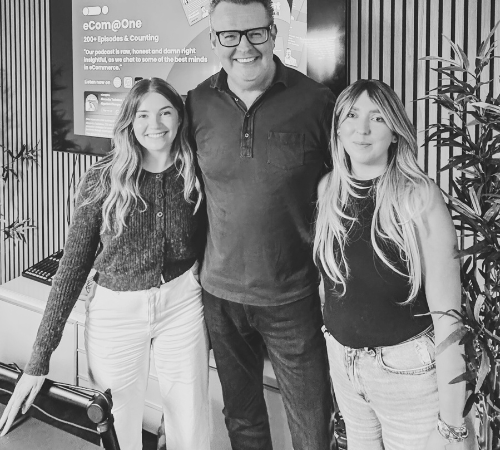Podcast Overview
Nick is best known as the Director at SirLinksalot, where he and his team provide backlinks and backlink-related products to SEOs around the globe, servicing roughly a thousand clients every month.
But Nick’s path into SEO wasn’t a straight line, in fact, he humbly describes himself as “not a tech guy” by background, with a colorful history bartending and fighting MMA before diving deep into the world of domains, PBNs, and eventually scaling up major link building campaigns.
Nick’s hands-on, real-world experience has helped countless brands across some of the most competitive niches crush their SEO goals using strategies that actually work.
From acquiring high-quality links at scale to innovative approaches like leveraging aged domains and 301 redirects, Nick’s methods are rooted in a decade-plus of constant evolution, testing and success.
Nick Altimore
In this episode, Richard sits down with Nick Altimore, a seasoned link building strategist and Director at SirLinksalot, to explore one of the most underutilised yet powerful growth levers in eCommerce, link building.
Together, they break down what actually works in today’s SEO landscape, starting with foundational techniques like “pillow links” and moving into advanced tactics such as 301 redirects, digital PR and some unconventional strategies you probably haven’t tried yet.
Nick brings real-world case studies to the table, sharing hard-earned insights on how to scale link building efforts effectively. He offers candid advice on when to outsource, when to keep it in-house, and how to make that call based on your business stage and goals.
They also dive into competitive link analysis, uncovering how to identify and bridge link gaps and how to stay one step ahead of ever-evolving search algorithms.
Whether you’re running a multi-million-pound e-commerce operation or just launching your first store, this conversation is packed with practical takeaways, expert-level guidance, and future-focused tips to help you boost authority, drive qualified traffic and climb the search rankings with confidence.
Topics Covered
00:23 – eCommerce growth, link building insights
05:49 – Link building strategy for eCommerce
07:05 – Foundational link building essentials
11:07 – Longevity SEO strategies
14:18 – Domain flipping with expired sites
17:31 – Domain value in link building
22:03 – Honest business budgeting advice
25:29 – Steady revenue builds business success
27:20 – Expert link building for eCommerce
29:41 – Deep dive analysis in eCommerce
35:49 – Realistic SEO budget planning
36:40 Holistic approach to ranking success
39:52 – Exploring parasite SEO and trends
43:47 – Link building lessons from viral success
49:20 – Consistent content strategy key
51:44 – Reluctant approach to link disavows
53:34 – SEO’s resilience and future outlook
57:38 – Book recommendation

